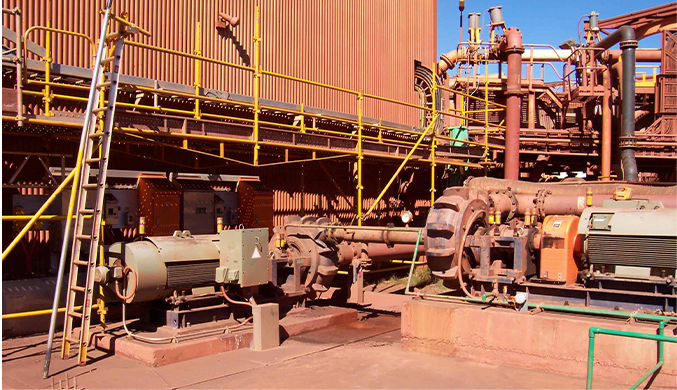Latin
- Afrikaans
- Albanian
- Amharic
- Arabic
- Armenian
- Azerbaijani
- Basque
- Belarusian
- Bengali
- Bosnian
- Bulgarian
- Catalan
- Cebuano
- Corsican
- Croatian
- Czech
- Danish
- Dutch
- English
- Esperanto
- Estonian
- Finnish
- French
- Frisian
- Galician
- Georgian
- German
- Greek
- Gujarati
- Haitian Creole
- hausa
- hawaiian
- Hebrew
- Hindi
- Miao
- Hungarian
- Icelandic
- igbo
- Indonesian
- irish
- Italian
- Japanese
- Javanese
- Kannada
- kazakh
- Khmer
- Rwandese
- Korean
- Kurdish
- Kyrgyz
- Lao
- Latin
- Latvian
- Lithuanian
- Luxembourgish
- Macedonian
- Malgashi
- Malay
- Malayalam
- Maltese
- Maori
- Marathi
- Mongolian
- Myanmar
- Nepali
- Norwegian
- Norwegian
- Occitan
- Pashto
- Persian
- Polish
- Portuguese
- Punjabi
- Romanian
- Russian
- Samoan
- Scottish Gaelic
- Serbian
- Sesotho
- Shona
- Sindhi
- Sinhala
- Slovak
- Slovenian
- Somali
- Spanish
- Sundanese
- Swahili
- Swedish
- Tagalog
- Tajik
- Tamil
- Tatar
- Telugu
- Thai
- Turkish
- Turkmen
- Ukrainian
- Urdu
- Uighur
- Uzbek
- Vietnamese
- Welsh
- Bantu
- Yiddish
- Yoruba
- Zulu
Telephone: +86 13120555503
Email: frank@cypump.com
Dec . 19, 2024 02:53 Back to list
horizontal centrifugal slurry pump
Understanding Horizontal Centrifugal Slurry Pumps A Comprehensive Overview
Centrifugal pumps are essential components in various industrial applications, particularly for transporting fluids, mixtures, and slurries. Among the different types of centrifugal pumps, horizontal centrifugal slurry pumps stand out due to their unique design and functionality, making them invaluable in industries such as mining, construction, and wastewater treatment.
What is a Horizontal Centrifugal Slurry Pump?
A horizontal centrifugal slurry pump is designed to handle abrasive slurries that consist of solid particles suspended in liquid. Unlike standard centrifugal pumps, which may be limited in handling solid content, slurry pumps are robustly constructed to withstand the harsh conditions associated with transporting abrasive materials. These pumps operate on a simple principle of converting rotational energy from a motor into kinetic energy through a rotating impeller.
Key Components of Horizontal Centrifugal Slurry Pumps
1. Impeller This is the rotating part of the pump that imparts energy to the slurry. The design of the impeller is critical, as it determines the efficiency and effectiveness of the pump in handling slurries. Impellers in slurry pumps are typically designed with a larger diameter and robust materials to endure wear from abrasives.
2. Casing The casing houses the impeller and is designed to contain the pump's flow. It is usually made from high-chrome alloys or rubber-lined materials to resist corrosion and abrasion, thereby extending the life of the pump.
3. Suction and Discharge Ports These ports are strategically placed to ensure optimal flow of the slurry into and out of the pump. The design and placement of these ports can affect the overall efficiency of the pumping operation.
4. Bearings and Shaft The bearings and shaft support the impeller and help maintain alignment during operation. Because slurry pumps can operate under high loads, components must be durable and suitable for handling high temperatures and pressures.
5. Wear Parts Slurry pumps are subject to considerable wear due to the abrasive nature of the materials they handle. Replaceable wear parts are integral for maintaining performance and reducing downtime during maintenance.
Applications of Horizontal Centrifugal Slurry Pumps
Horizontal centrifugal slurry pumps are used in various applications including
horizontal centrifugal slurry pump

- Mining These pumps are crucial for transporting ore slurries, tailings, and other mixtures involved in mineral processing. - Construction In construction, they are utilized for dewatering and transporting slurries from concrete and other materials.
- Wastewater Treatment Slurry pumps help in the handling of sludge and other waste materials, ensuring efficient processing in treatment plants
.- Power Generation In power plants, they are often employed to move coal slurries for fuel supply.
Advantages of Horizontal Centrifugal Slurry Pumps
- Robust Construction Designed to handle tough materials, these pumps are built to last and can operate in severe environments.
- High Efficiency They are capable of maintaining high flow rates and pressure, making them suitable for large-scale operations.
- Versatility Horizontal centrifugal slurry pumps can handle a wide range of slurry types, from coarse to fine particles.
- Easy Maintenance Many designs allow for easy access to internal components, facilitating quick repairs and replacements.
Challenges and Considerations
Despite their advantages, there are challenges associated with horizontal centrifugal slurry pumps. Selecting the appropriate pump for specific slurry characteristics (such as density and viscosity) is crucial for optimal performance. Additionally, wear and tear on components can lead to increased maintenance costs over time, necessitating the need for regular monitoring and part replacement.
Conclusion
Horizontal centrifugal slurry pumps play a crucial role in numerous industrial applications, particularly those involving abrasive materials. Their robust design, efficiency, and ability to handle a wide variety of slurries make them a preferred choice in industries like mining, construction, and wastewater management. Understanding their components, applications, and maintenance needs is essential for achieving optimal performance and longevity, ensuring that these pumps continue to meet the growing demands of modern industry. As technology advances, we can expect further innovations in this field, improving efficiency and operational capabilities while reducing maintenance challenges.
-
ISG Series Vertical Pipeline Pump - Chi Yuan Pumps Co., LTD.|High Efficiency, Energy Saving, Low Noise
NewsJul.30,2025
-
ISG Series Vertical Pipeline Pump- Chi Yuan Pumps|High Efficiency&Low Noise
NewsJul.30,2025
-
ISG Series Vertical Pipeline Pump-Chi Yuan Pumps Co., LTD.|High Efficiency&Energy Conservation
NewsJul.30,2025
-
ISG Series Vertical Pipeline Pump - Chi Yuan Pumps Co., LTD.|Advanced Hydraulic Design&Energy-Efficient Solutions
NewsJul.30,2025
-
ISG Series Vertical Pipeline Pump - Chi Yuan Pumps Co., LTD.
NewsJul.30,2025
-
ISG Series Vertical Pipeline Pump - Chi Yuan Pumps Co., LTD.|energy-efficient fluid handling&industrial durability
NewsJul.30,2025










